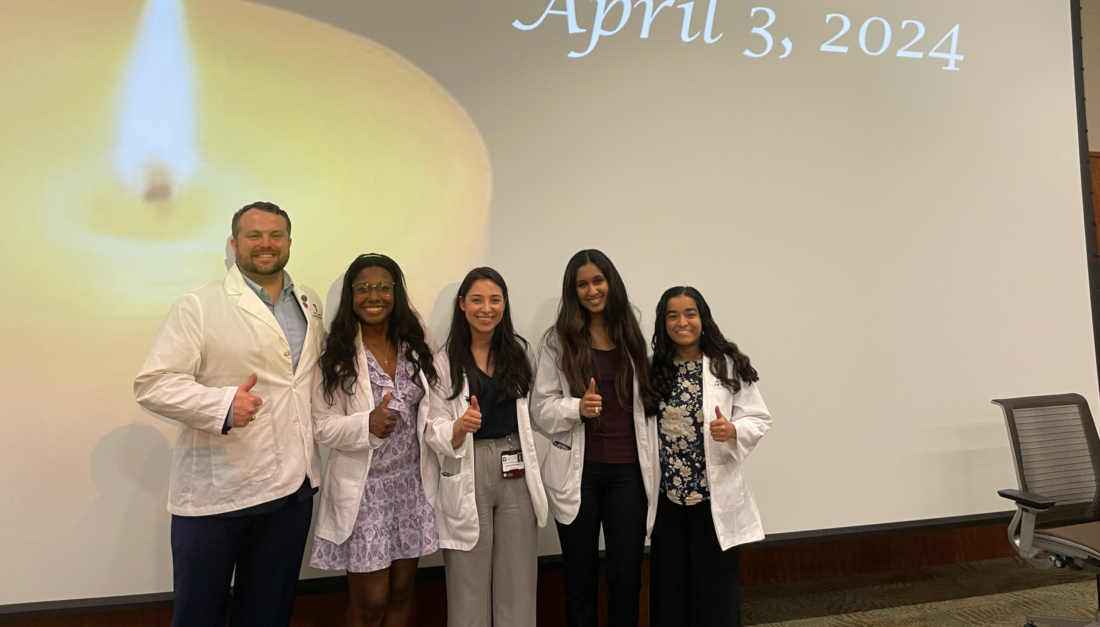Thousands benefit from diabetes-self management education in South Texas

Daniel felt weak. On most days, when he came home from working at his rental business in Corpus Christi, TX, he’d lay on the couch and sleep the evening away, leaving little time or motivation to enjoy his many hobbies. His wife took notice and encouraged him to visit his doctor, where he found out he’d been living with diabetes, likely for some time. His kids’ smiles flashed before his eyes and struck his heart—he had lost too many friends to uncontrolled diabetes, and today would not be his day.
Daniel is among the nearly one in four (20%) adults in South Texas that has been diagnosed with diabetes, but even more have it and don’t know it. In the Coastal Bend, more than 31 percent of adults are overweight and 42 percent are obese, meaning nearly three quarters of Coastal Bend residents are at increased risk for developing Type 2 diabetes.
In response to this epidemic, the Texas A&M Health Science Center Coastal Bend Health Education Center (CBHEC) provides resources to residents and health professionals of the Coastal Bend on how to prevent and control the disease.
Just days after receiving his diagnosis, Daniel registered for CBHEC’s Diabetes Education Program. Accredited by the American Diabetes Association (ADA), the program provides support to prevent onset of type 2 diabetes and to keep the disease under control once diagnosed. In addition, community events offer programs to schools and workplaces across the Coastal Bend. Last year, nearly 3,000 people were touched by the efforts of the program.
Diabetes self-management education (DSME) is a critical part of care for those with diabetes and, according to the ADA, is necessary in order to improve patient outcomes. CBHEC’S DSME classes are offered in English and Spanish to provide guidance with blood glucose monitoring, medication and insulin administration, nutrition, and physical activity. Attendance has increased drastically over the life of the program with 2,226 attending in 2015.
Health professionals use the Hemoglobin A1C test to assess a person’s average blood glucose (sugar) levels over the past two to three months. It does this by measuring the percent of hemoglobin (the protein in our red blood cells that carry oxygen) that has glucose attached to it. For people without diabetes, the normal range for the A1C test is between 4 and 5.6 percent. To control diabetes, the ADA suggests a target level below 7 percent in those who have already been diagnosed. Daniel’s A1C level was 12.2 percent when he began classes.
A key component to achieving success in a DSME class is the follow-up care. Every three months for one year, class participants are provided with complimentary follow-up labs and one-on-one consultation sessions.
“Follow-ups continue the education participants received in our class,” said Juanita Garcia, RN, MPH, manager of the CBHEC Diabetes Education Program. “We can answer questions that they are likely to have after trying to apply the strategies they learned in class.”
To lower A1C levels, Garcia recommends that patients take their medications as directed and keep their appointments with their health care providers and diabetes education program.
“We empower participants of our program to make change,” Garcia said, “change that is appropriate in each of their lives and individual situations.”
Just three months after taking CBHEC’s DSME class, Daniel’s energy was back, he felt stronger, and he started fishing again. And his A1C was down to 6.2 percent.
“When I hear someone talking about their high blood pressure, diabetes, or any other preventable health problem, I tell them my story,” Daniel said. “Diabetes doesn’t just take a toll on your health, it also affects your loved ones, so take control of it for you and your family.”
To learn more about the classes offered or to schedule an appointment, please call (361) 561-8584.
Media contact: media@tamu.edu


